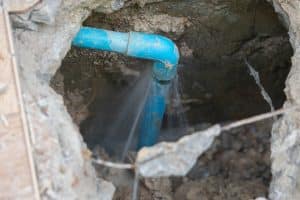Water heaters are essential for every home, providing hot water for showers, cleaning, and cooking. But when it comes to replacing an old water heater or installing a new one, the cost can be a significant concern for homeowners. In this article, we’ll discuss the factors that influence the cost of water heater installation, the different types of water heaters available, and how to determine the right size and capacity for your home.
Factors Affecting Water Heater Installation Cost
Several factors influence the cost of water heater installation. Here are the most significant ones:
Type of Water Heater
The type of water heater you choose affects the installation cost. The most common types of water heaters are:
- Tankless Water Heaters: These water heaters do not store hot water in a tank. They heat water on-demand as you use it. Tankless water heaters are energy-efficient and require less space for installation, but they are more expensive upfront.
- Conventional Storage Tank Water Heaters: These water heaters store hot water in a tank, which is constantly heated to maintain a set temperature. They are less expensive upfront but less energy-efficient.
- Hybrid Water Heaters: These water heaters combine the benefits of tankless and conventional storage tank water heaters. They use heat pump technology to heat the water, which is stored in a tank. Hybrid water heaters are more expensive upfront but offer significant energy savings in the long run.
Size and Capacity
The size and capacity of the water heater also affect the installation cost. A larger water heater with a higher capacity will cost more than a smaller one. The size and capacity of the water heater you need depend on the number of people in your household, their hot water usage, and the peak demand for hot water.
Installation Complexity
The complexity of the installation also affects the water heater installation cost. Installing a water heater in a new construction or during a renovation is easier and less expensive than retrofitting an existing home. The location of the water heater, the need for new piping, and the installation of ventilation systems can all increase the installation cost.
Permitting and Code Compliance
In some areas, a permit may be required for water heater installation. The cost of the permit and any necessary code compliance upgrades can add to the total installation cost.
Types of Water Heaters
As mentioned earlier, there are three main types of water heaters: tankless, conventional storage tank, and hybrid. Here’s a closer look at each type:
Tankless Water Heaters
Tankless water heaters are available in two types: electric and gas. Electric tankless water heaters are smaller and less expensive, but they may not be able to keep up with high hot water demand. Gas tankless water heaters are more expensive but can handle high hot water demand and are more energy-efficient.
Conventional Storage Tank Water Heaters
Conventional storage tank water heaters are available in gas and electric models. They come in a range of sizes, from 20 to 80 gallons, and require a large space for installation. Gas storage tank water heaters are more expensive upfront but cost less to operate than electric models.
Hybrid Water Heaters
Hybrid water heaters use a heat pump to heat the water, making them more energy-efficient than conventional storage tank water heaters. They are available in electric and gas models and require a smaller space for installation.
Determining the Right Size and Capacity
To determine the right size and capacity of the water heater you need, you’ll need to consider the following factors:
- The number of people in your household
- The hot water usage of each person
- The peak demand for hot water
It’s essential to choose a water heater with the right size and capacity to meet your hot water needs. An undersized water heater will not provide enough hot water, while an oversized one will waste energy and cost more to operate.
To determine the right size and capacity of the water heater, you can use the following calculation:
- Estimate the peak hour demand for hot water by adding up the hot water usage of all the fixtures in your home that use hot water (such as showers, baths, washing machines, and dishwashers).
- Determine the first-hour rating (FHR) of the water heater you’re considering. The FHR is the amount of hot water the water heater can deliver in the first hour of use.
- Choose a water heater with an FHR that matches or exceeds your peak hour demand.
Water Heater Installation Cost
Now that you know the factors that influence the cost of water heater installation and the different types of water heaters available, let’s take a closer look at the typical cost of water heater installation.
The average cost of water heater installation in the United States is between $700 and $1,500, depending on the type and size of the water heater, the complexity of the installation, and the cost of permits and code compliance upgrades. Here’s a breakdown of the average cost by water heater type:
- Tankless water heater installation: $1,000-$3,000
- Conventional storage tank water heater installation: $500-$1,500
- Hybrid water heater installation: $1,500-$3,000
Keep in mind that these are average costs, and the actual cost of installation can vary depending on your location and other factors specific to your project. It’s always a good idea to get multiple quotes from licensed and insured contractors to compare prices and ensure you’re getting a fair deal.
Conclusion
Water heater installation service cost varies depending on the type and size of the water heater, the complexity of the installation, and the cost of permits and code compliance upgrades. When choosing a water heater, it’s essential to consider the size and capacity you need to meet your hot water needs. By understanding the factors that influence the cost of water heater installation and the different types of water heaters available, you can make an informed decision and get the best value for your money.
FAQs
- How long does it take to install a water heater?
- The installation time varies depending on the type of water heater and the complexity of the installation. On average, it takes between 2 and 4 hours to install a water heater.
- How often should I replace my water heater?
- The average lifespan of a water heater is 8 to 12 years. You should consider replacing your water heater if it’s more than 10 years old, has frequent breakdowns, or is no longer meeting your hot water needs.
- Can I install a water heater myself?
- It’s not recommended to install a water heater yourself, as it can be dangerous and lead to damage or injury. Always hire a licensed and insured contractor for water heater installation.
- Are tankless water heaters more expensive to maintain than conventional storage tank water heaters?
- Tankless water heaters are generally less expensive to maintain than conventional storage tank water heaters, as they have fewer components and are less prone to leaks.
- Are there any rebates or incentives available for water heater installation?
- Many utility companies and government agencies offer rebates or incentives for installing energy-efficient water heaters. Check with your local utility company or visit energy.gov for more information.




